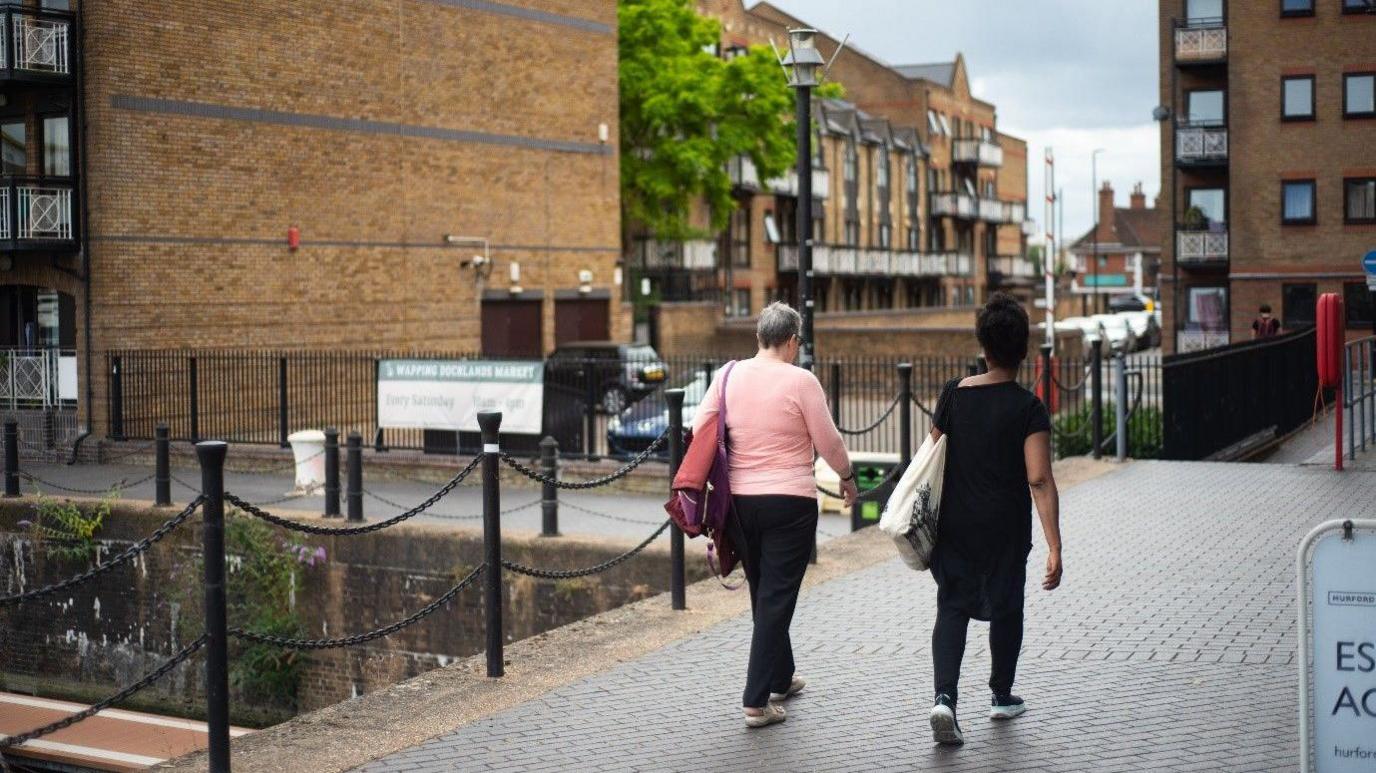Women's march: 'We don't feel safe on our streets'
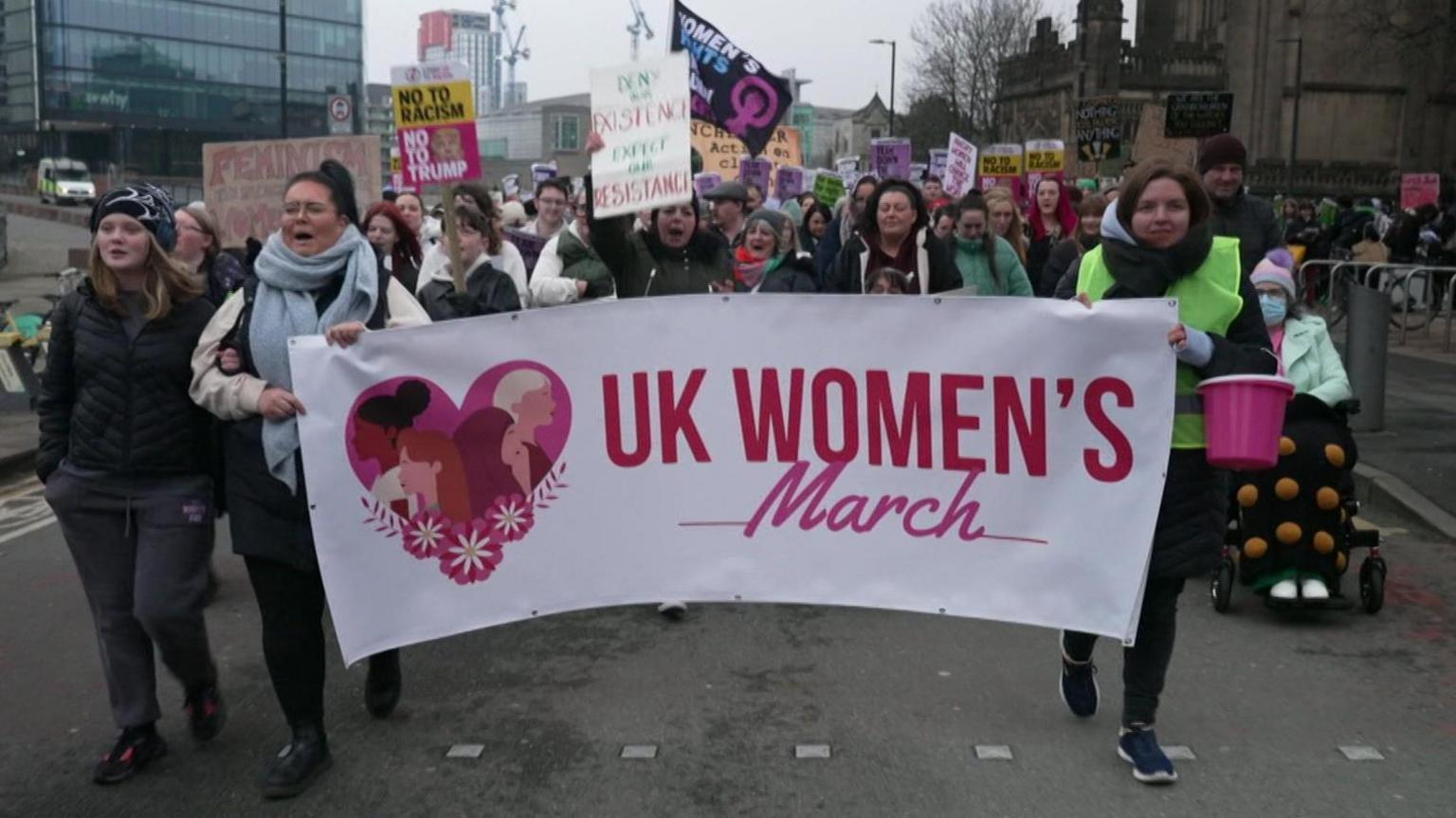
Marches have been held at 20 locations around the UK, including Manchester (above)
- Published
Hundreds of people have attended women's marches across the North West protesting an "unacceptable" rise in violence against women.
Organisers of the events in Manchester and Liverpool voiced concerns about increasing reports of violence against women, described as an "epidemic, external" by police chiefs.
The events, which happened at 20 locations across the UK, were organised by the recently-established UK Women's March group who said they wanted to "make our voices heard".
Sophie Cain, who helped organise the Manchester march, said: "The passion for [women's rights] has always been there, but we've seen the changes that are happening across the world and we are starting to feel it here in the UK."
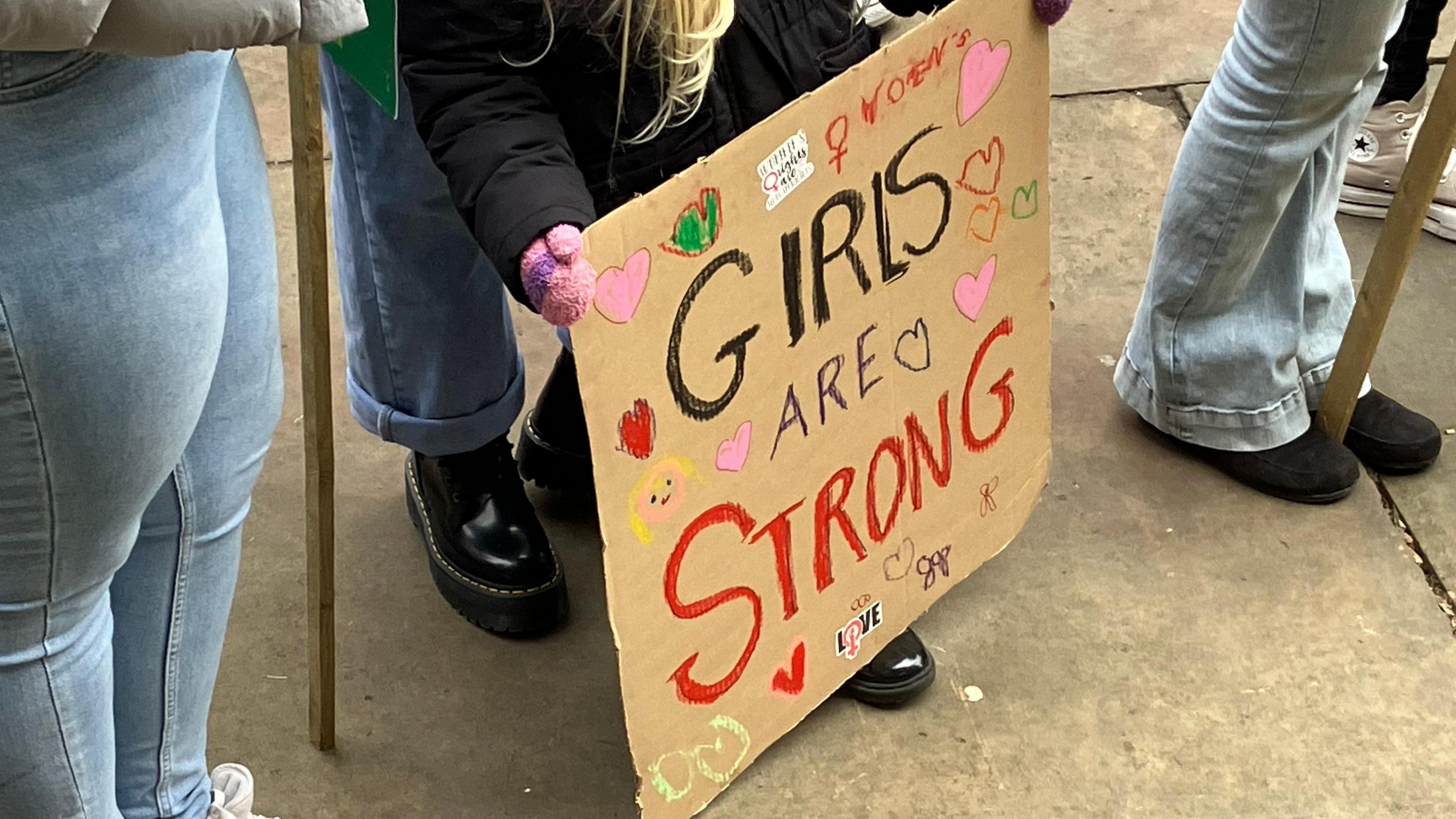
Marchers gathered with placards outside St George's Hall in Liverpool
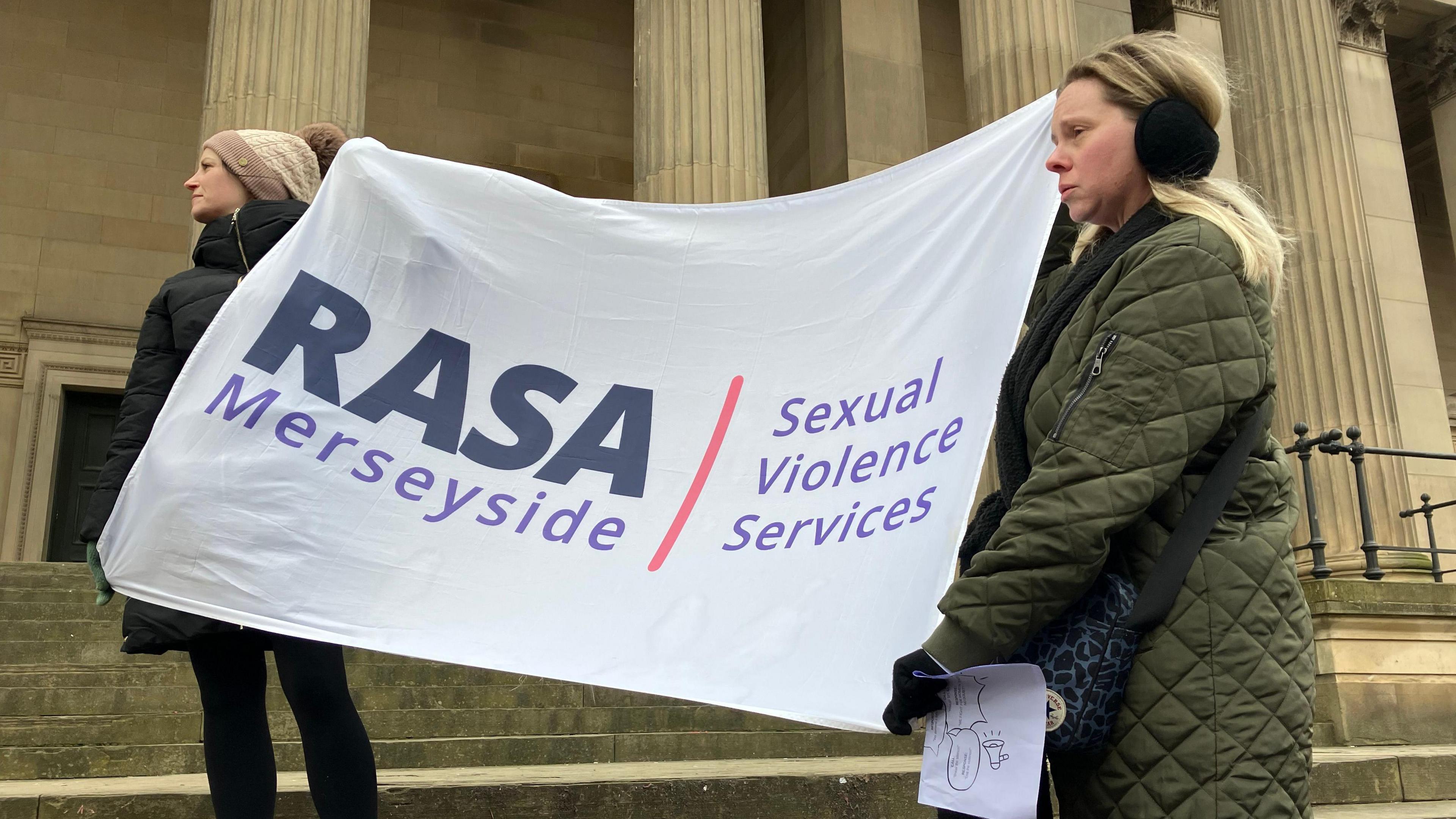
Women in Merseyside gathered in Liverpool for a march
It comes as thousands of Americans have taken to the streets in Washington DC for the People's March - a newly rebranded protest movement, previously known as the Women's March - which has taken place every year since 2017 as Donald Trump began his tenure as President.
In the UK, the government recently repeated it was treating violence against women and girls (VAWG) as a "national emergency, external" and that they would outline later this year their strategy to halve the crimes.
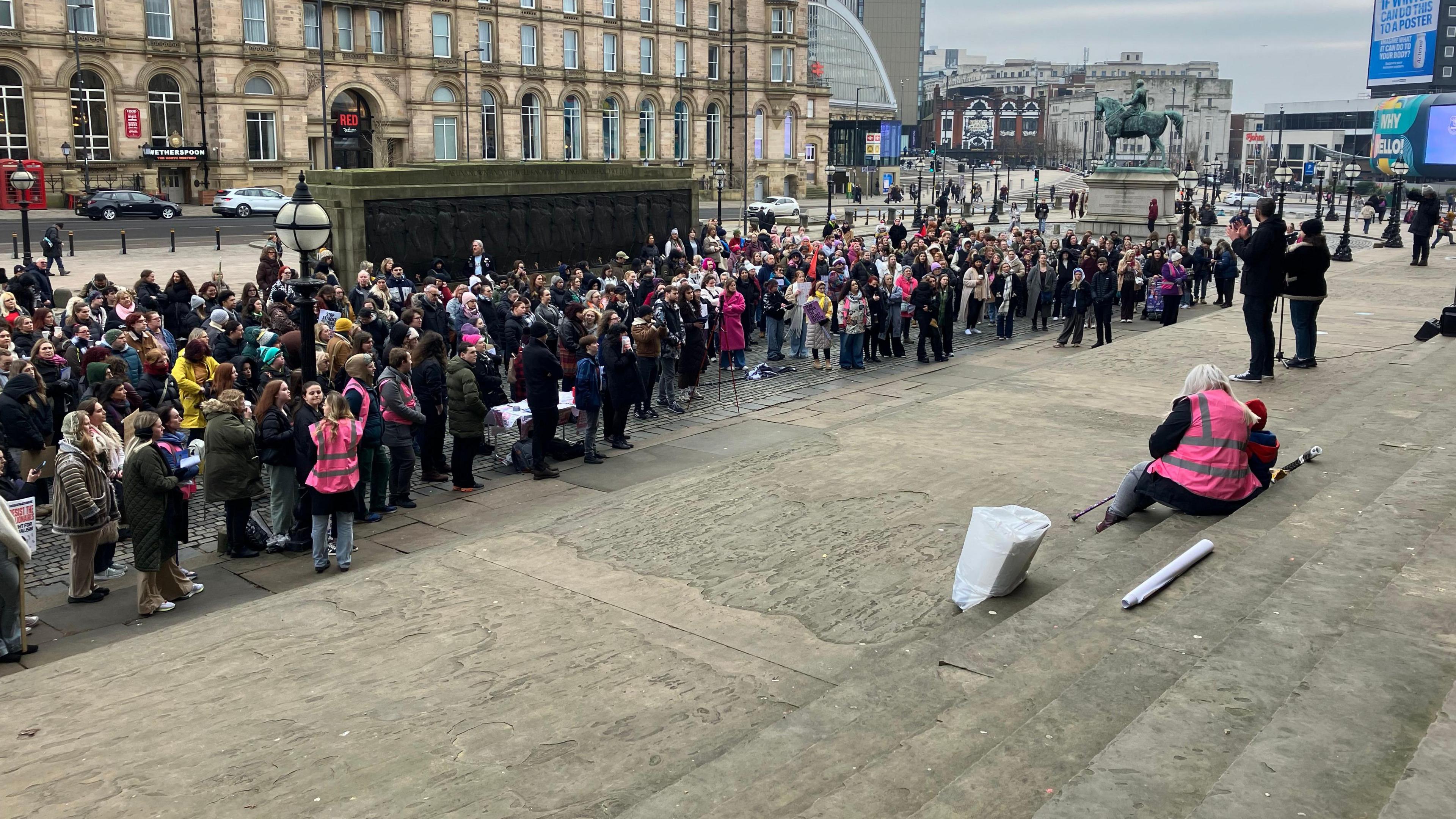
Crowds turned out in Merseyside to show their support
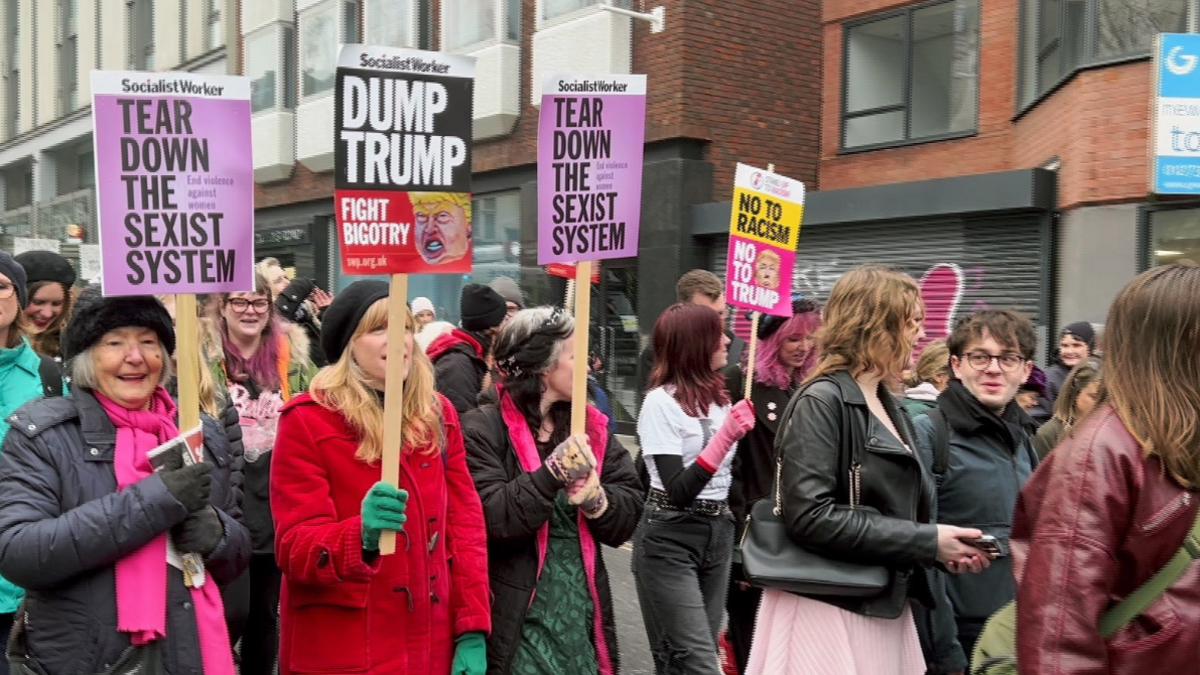
Marches are taking place across the UK, including Brighton
Co-organiser of the Manchester march, Alison Campbell, said they "welcome the commitment to halve violence against women and girls by 50% in 10 years".
"We're not quite sure how they're going to achieve it and we want that to be taken a step further."
The government's announcement comes after a number of high-profile deaths of women and girls, plus coverage of grooming gangs.
In 2024, the National Police Chiefs' Council said more than a million VAWG-related crimes were recorded during 2022/23 – making up about 20% of all police recorded crime.
They also said offences had risen by 37% between 2018 and 2023.
At the Manchester march, Ms Cain said: "It's unacceptable - it's not the society we should have.
"It's a real shame that we don't feel safe in the streets or in our own home either."
Get in touch
Tell us which stories we should cover in Greater Manchester
Listen to the best of BBC Radio Manchester on Sounds and follow BBC Manchester on Facebook, external, X, external, and Instagram, external.
Related topics
- Published14 August 2024
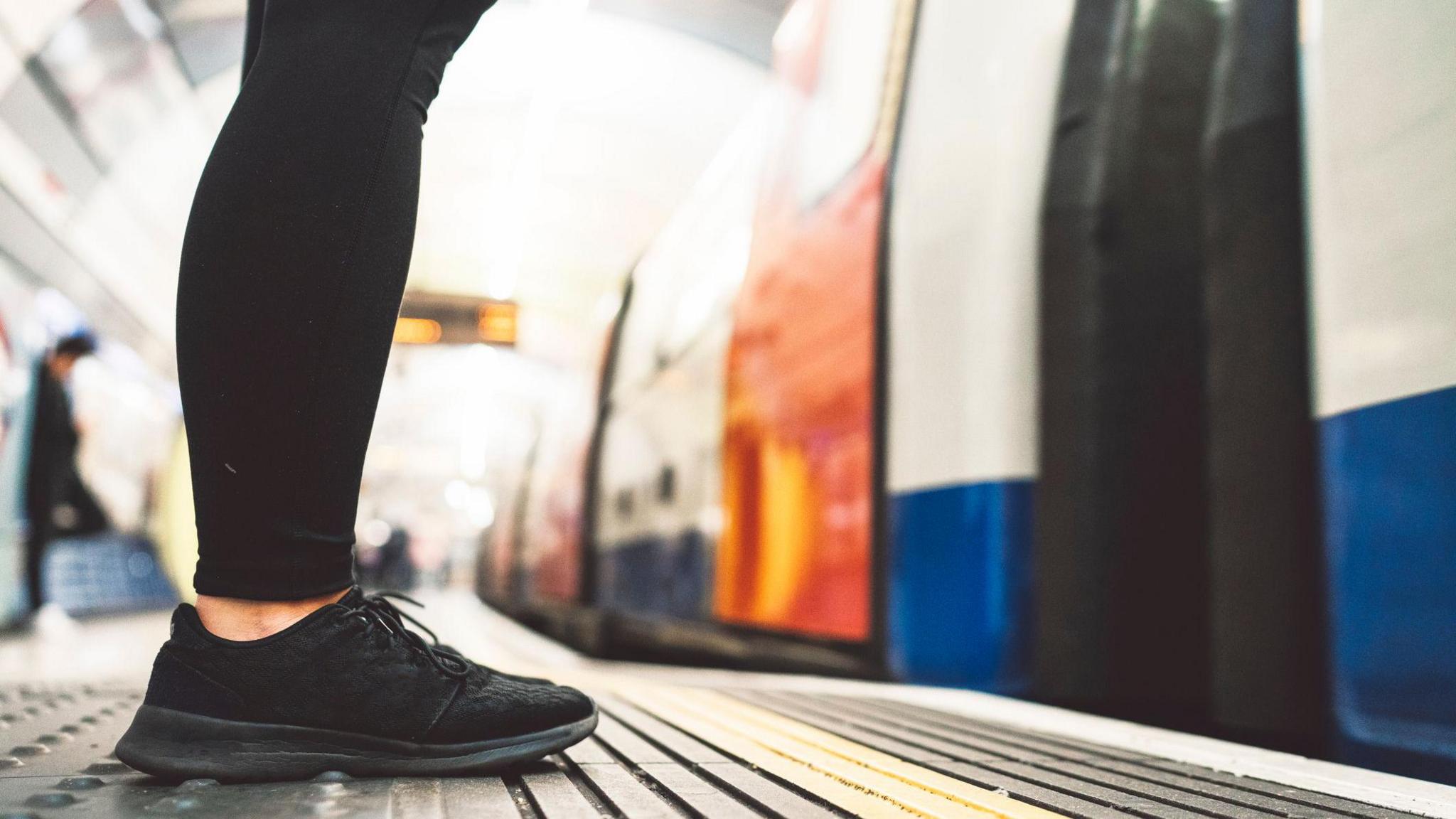
- Published2 September 2024
